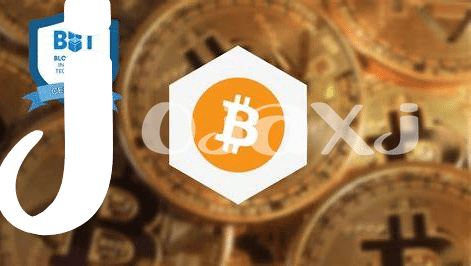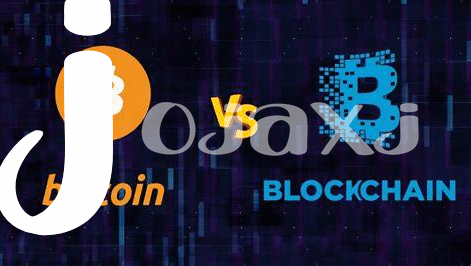🌍 a World of Rules: Understanding Sanctions

Imagine a giant board game covering the whole planet, where each country sets its own rules on how goods and money can move across its borders. This is similar to what we call sanctions: they are like the rules of this global game, meant to control or limit what can be sold or bought, to keep things fair and safe or sometimes to punish those not playing by the rules. But, like all games, understanding these rules is crucial. Countries impose sanctions for different reasons – sometimes it’s about maintaining peace, other times it’s about penalizing certain behaviors. Sanctions can range from mild, like slapping a fine on certain goods, to severe, like cutting off a country from the global financial system. It’s a complex world, where each decision can ripple across the globe, affecting economies and everyday people.
| Sanction Type | Purpose | Example |
|---|---|---|
| Trade Embargo | Limits on goods/services | Blocking arms sales |
| Financial Sanction | Restrictions on money movement | Freezing assets |
| Travel Ban | Restricting movement of people | Preventing officials from traveling abroad |
🔗 Blockchain Basics: What You Need to Know
Imagine a digital ledger, a bit like a shared notebook, that keeps a record of data transactions. Everyone can have a copy of this notebook, making sure no one person or group has control over the whole thing. This is the essence of blockchain. It’s a technology that allows information to be stored and passed around in blocks that are chained together in a secure and transparent way. Each block is like a page in that notebook, detailing transactions that have happened. Once a page is full, it’s sealed and linked to the previous page, creating a chain. This design makes it incredibly difficult for someone to go back and change a single transaction without altering all subsequent blocks, which requires approval from the majority in the network. It’s a clever system that provides a level of security and honesty in digital dealings. For more insights into how blockchain is shaping our digital world, check out https://wikicrypto.news/enhancing-bitcoin-wallet-security-through-artificial-intelligence.
⚖ Balancing Act: Blockchain Vs. Global Sanctions

Imagine standing on a tightrope, balancing carefully. On one side, there’s the world of digital ledgers, a place where transactions are recorded securely and transparently. On the other, a complex web of global rules designed to monitor and control these transactions, aiming to keep the bad guys at bay. This is the world where blockchain technology dances with global sanctions. It’s like trying to have a heart-to-heart in two different languages. Blockchain operates on a principle of decentralization, meaning no single entity has control. This could make it harder for regulatory bodies to track transactions that might be breaking rules. But it’s not just a game of cat and mouse. Think of blockchain as a clever fox, constantly adapting. It has the potential to offer more transparent transactions, making it easier for those enforcing sanctions to see where money is moving. This balancing act isn’t about defeating one side or the other; it’s about finding a harmony where innovation meets compliance, opening doors to new ways of managing and respecting the complex tapestry of international laws. The challenge is hefty, but the rewards — safer, more transparent global transactions — are well worth the effort.
💡 Innovative Solutions: Blockchain’s Role in Compliance

Imagine a digital ledger that is transparent, yet secure, a system where every transaction can be traced, yet the identities behind these transactions can remain confidential. This is the promise of blockchain technology, and it’s not just about cryptocurrency anymore. As we navigate the complex world of global sanctions, blockchain offers a beacon of hope. It can help businesses comply with these regulations while maintaining efficiency. By creating an immutable record of transactions, blockchain ensures that companies can prove their adherence to the law without exposing sensitive information. For more insights on the broader applications of blockchain, consider exploring bitcoin in literature and film and the blockchain, which sheds light on its multifaceted potential beyond financial transactions.
This innovation is especially crucial in today’s digital age, where the speed and volume of transactions can make compliance a daunting task. Blockchain simplifies this by providing a platform that not only automates the compliance process but also secures it against manipulation. Imagine integrating smart contracts, which are self-executing contracts with the terms directly written into code, into this system. These can be programmed to automatically enforce compliance, eliminating human error and reducing the risk of non-compliance. As businesses and regulators alike seek more efficient ways to uphold sanctions without stiferring innovation, blockchain stands out not just as a tool for compliance, but as a transformative solution paving the way for a more accountable and transparent global economic landscape.
🧳 Case Studies: Blockchain Navigating through Sanctions
Imagine a big, global puzzle where each piece represents a country with its own set of rules for playing the game. Now, think of blockchain as a clever way to move your pieces around the puzzle without breaking any of these rules. This is exactly what some forward-thinking companies are doing, finding innovative paths through the complex world of sanctions. By using blockchain, they’re ensuring that their transactions are transparent and traceable, which is a big thumbs-up for compliance with global rules. The technology allows them to show, without a shadow of a doubt, that they’re playing the game fair and square.
| Company | Challenge | Blockchain Solution | Outcome |
|---|---|---|---|
| Global Finance Corp. | Navigating US sanctions | Implementing a blockchain ledger for transparent transactions | Successful compliance with US regulations |
| TechExports Inc. | Avoiding EU sanctions on tech goods | Using smart contracts to verify permissible trade relationships | Boosted trade compliance and reduced legal risks |
By cleverly applying blockchain, these companies have not just managed to stay within the lines of international sanctions but have also streamlined their operations, proving that technology can indeed offer a helping hand in the intricate dance of global compliance. This is not just a victory lap for these trailblazers but a beacon of possibility for others looking to navigate the sanctions labyrinth without getting lost.
🚀 the Future: Blockchain’s Potential Against Sanctions

As we peer into the not-so-distant future, it’s clear that blockchain technology is set to play a pivotal role in how we navigate and potentially circumvent the complex web of global sanctions. Imagine a world where each transaction is not only secure but also transparent to those who need to see it, while still respecting the privacy of those involved. This is the promise blockchain offers. It’s a world where the traditional barriers set by international sanctions could be redefined, offering a new realm of possibilities for global trade and economic diplomacy. The ability to securely and anonymously validate transactions can provide an innovative pathway for maintaining economic relationships, even in the face of restrictions.
In this evolving scenario, technologies like bitcoin and quantum computing are at the forefront, offering solutions that could make the enforcement of sanctions more selective and refined. By integrating artificial intelligence, blockchain systems could become smarter, automatically detecting and navigating around potential sanctions, ensuring compliance without human intervention. This doesn’t just open up new avenues for finance and trade; it heralds a new era in which digital diplomacy and economic strategy are intertwined with technology. The journey ahead is fraught with challenges, but the potential is undeniably vast, signaling a shift towards a more interconnected and resilient global economy.
